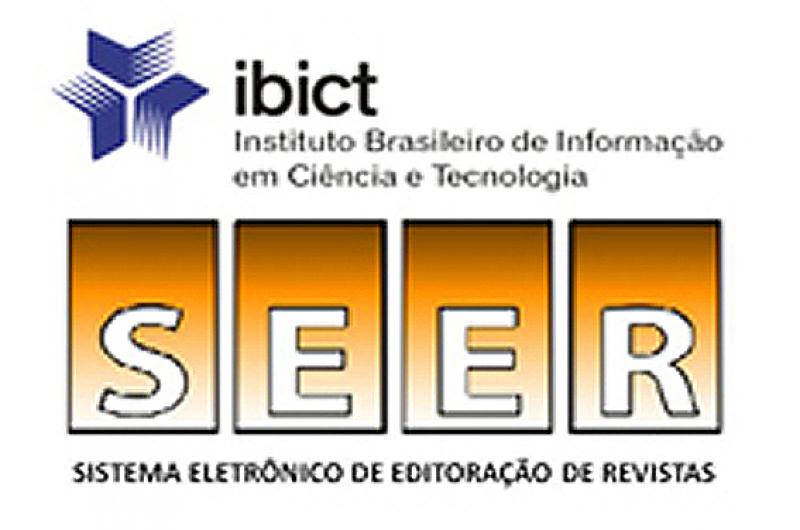O avanço da implementação do Objetivo de Desenvolvimento Sustentável 6 - Água Potável e Saneamento no Brasil
Visualizações: 431DOI:
https://doi.org/10.31416/rsdv.v13i3.1075Keywords:
Environment, Pollution, Water resources, SustainabilityAbstract
Faced with the global environmental imbalance, the scarcity of natural resources and unsustainable development, the United Nations (UN) established the Sustainable Development Goals (SDGs). Occupying a prominent place, SDG 6 – Clean Water and Sanitation has specific deadlines for its fulfillment. With the aim of contextualizing and analyzing the real progress in the implementation of SDG 6 - Clean Water and Sanitation in Brazil, taking into account the various negative consequences of the absence of these services, a review of the literature on the topic was carried out using specific keywords and Sanitation indices in Brazil were analyzed for the period from 2016 to 2022. Using simple statistical analysis, through regression and linear forecasting, the forecast growth of indices was evaluated for the final deadlines of SDG 6 – Clean Water and Sanitation and Law No. 14,026, of July 15, 2020. Water service rates in the country normally present values above 80%. On the other hand, sewage collection rates, for the most part, are less than 50% in Brazil. Despite the contrast between services, none of the areas shows sufficient average growth to reach the goals established by SDG 6 – Clean Water and Sanitation or by Brazilian Law. In the current context, universalization goals will not be achieved in any proposed scenario. The universalization proposed by SDG 6 will only be achieved, in the Brazilian context, when real advances are established, based on effective public policies.
References
DEVECI, Muhammet et al. Rough sets based Ordinal Priority Approach to evaluate sustainable development goals (SDGs) for sustainable mining. Resources Policy, v. 79, p. 103049, 2022. Disponível em: https://doi.org/10.1016/j.resourpol.2022.103049. Acesso em: 08 mai. 2023.
FAGUNDES, Thalita Salgado; MARQUES, Rui Cunha; MALHEIROS, Tadeu Fabrício. Are Brazilian water auction prices affordable for vulnerable families?. Utilities Policy, v. 88, p. 101749, 2024. Disponível em: https://doi.org/10.1016/j.jup.2024.101749. Acesso em: 08 mai. 2023.
HEGARTY, Susan et al. Using citizen science to understand river water quality while filling data gaps to meet United Nations Sustainable Development Goal 6 objectives. Science of The Total Environment, v. 783, p. 146953, 2021. Disponível em: https://doi.org/10.1016/j.scitotenv.2021.146953. Acesso em: 08 mai. 2023.
KLIGERMAN, Debora Cynamon; SANCANARI, Sandra Novellino; NOGUEIRA, Joseli Maria Rocha. Caminhos para viabilização da convergência de interesses na despoluição do Rio Guandu, Rio de Janeiro, Brasil. Cadernos de Saúde Pública, v. 37, p. e00234420, 2021. Disponível em: https://doi.org/10.1590/0102-311X00234420. Acesso em: 08 mai. 2023.
KNEBEL, Moritz Von. Cross-country comparative analysis and case study of institutions for future generations. Futures, v. 151, p. 103181, 2023. Disponível em: https://doi.org/10.1016/j.futures.2023.103181. Acesso em: 08 mai. 2023.
LEITE, Carlos Henrique Pereira; MOITA NETO, José Machado; BEZERRA, Ana Keuly Luz. Novo marco legal do saneamento básico: alterações e perspectivas. Engenharia Sanitaria e Ambiental, v. 27, p. 1041-1047, 2022. Disponível em: https://doi.org/10.1590/S1413-415220210311. Acesso em: 08 mai. 2023.
ONU. Organização das Nações Unidas. Global Sustainable Development Report: 2015 Edition. Disponível em: https://sustainabledevelopment.un.org/content/documents/1758GSDR%202015%20Advance%20Unedited%20Version.pdf. Acesso em: 08 mai. 2023.
PAN, Xunzhang et al. Energy and sustainable development nexus: A review. Energy Strategy Reviews, v. 47, p. 101078, 2023. Disponível em: https://doi.org/10.1016/j.esr.2023.101078. Acesso em: 08 mai. 2023.
SILVA, Natanael José da; MANTOVANO, Tatiane; LANSAC-TÔHA, Fábio Amodêo; SOUSA ROCHA, José de Ribamar. Percepção ambiental: a poluição em dois rios urbanos noticiada na mídia eletrônica. Revista em Agronegócio e Meio Ambiente, v. 15, n. 4, p. 1-19, 2022. Disponível em: https://doi.org/10.17765/2176-9168.2022v15n4e9362. Acesso em: 08 mai. 2023.
SNIS. Sistema Nacional de Informações sobre Saneamento. Ministério das Cidades. Secretaria Nacional de Saneamento Ambiental. 22º Diagnóstico dos Serviços de Água e Esgotos - 2016. Brasília, 2018.
SNIS. Sistema Nacional de Informações sobre Saneamento. Ministério do Desenvolvimento Regional. Secretaria Nacional de Saneamento. 23º Diagnóstico dos Serviços de Água e Esgotos - 2017. Brasília, 2019.
SNIS. Sistema Nacional de Informações sobre Saneamento. Ministério do Desenvolvimento Regional. Secretaria Nacional de Saneamento. 24º Diagnóstico dos Serviços de Água e Esgotos - 2018. Brasília, 2019.
SNIS. Sistema Nacional de Informações sobre Saneamento. Ministério do Desenvolvimento Regional. Secretaria Nacional de Saneamento. 25º Diagnóstico dos Serviços de Água e Esgotos - 2019. Brasília, 2020.
SNIS. Sistema Nacional de Informações sobre Saneamento. Ministério do Desenvolvimento Regional. Secretaria Nacional de Saneamento. Diagnóstico Temático: Serviços de Água e Esgoto - Visão Geral ano referência 2020. Brasília, 2021.
SNIS. Sistema Nacional de Informações sobre Saneamento. Ministério do Desenvolvimento Regional. Secretaria Nacional de Saneamento. Diagnóstico Temático: Serviços de Água e Esgoto - Visão Geral ano referência 2021. Brasília, 2022.
SNIS. Sistema Nacional de Informações sobre Saneamento. Ministério das Cidades. Secretaria Nacional de Saneamento Ambiental. Diagnóstico Temático: Serviços de Água e Esgoto - Visão Geral ano referência 2022. Brasília, 2023.
SNIS. Sistema Nacional de Informações sobre Saneamento. Painel do Setor de Saneamento. 2023. Disponível em: https://www.gov.br/mdr/pt-br/assuntos/saneamento/snis/painel. Acesso em: 18 abr. 2023.
SOUZA, Keyla Mirelly Nunes de. Despejo de esgoto no afluente do Rio São Francisco: Estudo de caso. Revista Semiárido De Visu, v. 12, n. 1, 2024. Disponível em: https://doi.org/10.31416/rsdv.v12i1.386. Acesso em: 18 abr. 2023.
WOLF, Jennyfer et al. Burden of disease attributable to unsafe drinking water, sanitation, and hygiene in domestic settings: a global analysis for selected adverse health outcomes. The Lancet, v. 401, n. 10393, p. 2060-2071, 2023. Disponível em : https://doi.org/10.1016/S0140-6736(23)00458-0. Acesso em: 18 abr. 2023.
YOUSEF, Bashria A. A. et al. On the contribution of concentrated solar power (CSP) to the sustainable development goals (SDGs): A bibliometric analysis. Energy Strategy Reviews, v. 52, p. 101356, 2024. Disponível em: https://doi.org/10.1016/j.esr.2024.101356. Acesso em: 18 abr. 2023.
Downloads
Published
How to Cite
Issue
Section
License
Copyright (c) 2025 Revista Semiárido De Visu

This work is licensed under a Creative Commons Attribution 4.0 International License.















